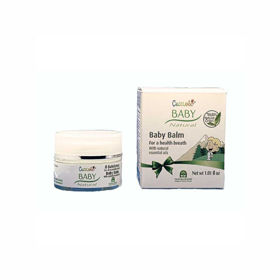Vprašanje stranke:
Kako dolgo trajata kašelj in bolečina v pljučih po pljučnici? Vprašanje anonimne stranke
Odgovor farmacevta:
Trajanje kašlja in bolečine v pljučih po pljučnici je odvisno od več dejavnikov, vključno z resnostjo in vrsto pljučnice, splošnim zdravstvenim stanjem posameznika, starostjo, imunskim sistemom in pravočasnostjo zdravljenja.
V večini primerov lahko kašelj in bolečina v pljučih po pljučnici trajata od nekaj tednov do nekaj mesecev. Vendar pa se lahko simptomi razlikujejo od osebe do osebe. Nekateri ljudje lahko opazijo izboljšanje simptomov v nekaj tednih po začetku zdravljenja, medtem ko drugi potrebujejo več časa, da si popolnoma opomorejo.
Kašelj je lahko še posebej vztrajen in se lahko pojavlja predvsem zjutraj ali pri izpostavljenosti določenim sprožilcem, kot je onesnažen zrak ali kajenje. Bolečina v pljučih se običajno postopoma zmanjšuje, vendar se lahko pri nekaterih ljudeh zadržuje dlje, še posebej, če je bila pljučnica resnejša ali če so prisotne druge zdravstvene težave.
Pomembno je, da sledite navodilom svojega zdravnika in si vzamete dovolj časa za okrevanje. Po pljučnici je priporočljivo spoštovati počitek, izogibati se naporom, ki bi lahko dražili dihalne poti, in se izogibati kajenju ali izpostavljenosti dimu. Prav tako je koristno piti dovolj tekočine, da ohranite hidracijo, in se posvetovati s svojim zdravnikom glede morebitnih nadaljnjih korakov za pospešitev okrevanja. Če se simptomi ne izboljšajo ali se poslabšajo, se posvetujte z zdravnikom za nadaljnje ocenjevanje in zdravljenje.
Na kaj kažeta kašelj in bolečina v pljučih?
Kašelj in bolečina v pljučih sta lahko simptoma različnih bolezni dihalnega sistema, vključno s prehladom, gripo, bronhitisom, pljučnico, astmo, kronično obstruktivno pljučno boleznijo (KOPB), pljučnim rakom in drugimi.
- Prehlad in gripa: kašelj in bolečina v pljučih sta pogosta simptoma prehlada in gripe. Pri teh okužbah lahko kašelj spremlja sluz, zamašen nos, vročina, bolečine v telesu in utrujenost.
- Bronhitis: bronhitis je vnetje bronhijev, kar lahko povzroči kašelj, pogosto s sluzjo, bolečine v prsih, sopenje in težko dihanje.
- Pljučnica: pljučnica predstavlja vnetje pljučnih tkiv, kar običajno povzročajo bakterije, virusi ali glivice. Simptomi vključujejo kašelj, vročino, bolečine v prsih, hitro dihanje in utrujenost.
- Alergijska astma: pri alergijski astmi se lahko pojavijo simptomi, kot so kašelj, sopenje, težko dihanje in bolečine v prsih, zaradi alergijske reakcije na sprožilce, kot so prah, cvetni prah ali denimo dlake živali.
- Kronična obstruktivna pljučna bolezen (KOPB): KOPB je kronična bolezen dihal, ki jo običajno povzročata kajenje cigaret ali izpostavljenost drugim škodljivim snovem. Simptomi vključujejo kašelj, sopenje, težko dihanje in bolečine v prsih.
- Pljučni rak: pljučni rak lahko povzroči kašelj, pogosto v povezavi s krvjo, bolečine v prsih, težko dihanje, izgubo teže in splošno slabo počutje.
Kako lajšati kašelj?
Lajšanje kašlja lahko vključuje različne ukrepe, kar je odvisno predvsem od vzroka in narave kašlja. Splošni ukrepi za lajšanje kašlja vključujejo pitje zadostne količine tekočine, vlaženje zraka, izogibanje dražilnim snovem, izpiranje grla s toplo slano vodo, vdihavanje pare, uporabo zdravil za pomiritev ali lajšanje kašlja (na primer zdravil s sredstvi za izkašljevanje, zdravil za redčenje sluzi ali antitusikov), in počitek. Pomembno je, da se posvetujete z zdravnikom, če kašelj traja dlje časa, je zelo intenziven, ga spremljajo drugi simptomi ali če se kašelj pojavlja pri otroku, še posebej mlajšem od enega leta.
Ali gripa povzroča bolečine v pljučih?
Da, gripa lahko povzroča tudi bolečine v pljučih. Gripa je virusna okužba dihalnih poti, ki jo povzročajo virusi influence. Simptomi gripe so lahko: bolečine v mišicah, vključno z bolečinami v prsih. Ko virus influence napade telo, lahko povzroči vnetje v dihalnih poteh, vključno z vnetjem v bronhijih in pljučih. To lahko sproži občutek nelagodja in bolečine v prsih. Bolečina v pljučih pri gripi je torej ponavadi posledica vnetja ali draženja pljučnega tkiva, ki ga povzroči virus.
Poleg bolečin v pljučih lahko gripa povzroči tudi druge simptome, kot so vročina, mrzlica, kašelj, zamašen nos, glavobol, bolečine v mišicah, utrujenost in splošno slabo počutje. Pri nekaterih ljudeh se simptomi gripe lahko razvijejo v hujšo obliko, ki zahteva zdravniško obravnavo, zlasti pri ljudeh s kroničnimi boleznimi, starejših osebah in otrocih.
Zanimivo branje: Bolečina na desni strani hrbta pod rebri
Zanimivo branje: Bolečina v ledvenem delu








 Facebook
Facebook
 Instagram
Instagram
 info@moja-lekarna.com
info@moja-lekarna.com

